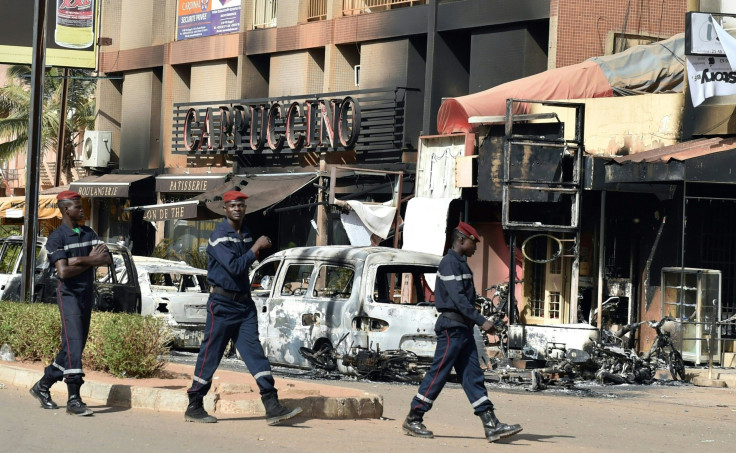Burkina Faso Update: Australian Couple Kidnapped, Reportedly In Hands Of Jihadists

An Australian couple has been kidnapped in Burkina Faso, officials said Saturday. A Malian Islamist group told Agence France-Presse the two Australians were being held by jihadis linked to al Qaeda.
The Burkina government said the couple was kidnapped in the Baraboule area of the West African country, near its border with Niger and Mali. An intelligence source told Agence France-Presse the Australians were a couple in their 80s from Perth who had lived in Djibo, which is near Baraboule, since 1972. Burkina Faso's Interior Ministry had previously said, incorrectly, the couple was Austrian. The Associated Press identified the couple as an Australian doctor and his wife.
News of the kidnapping comes on the heels of a jihadi assault on a hotel in the capital that left at least 23 people dead, many of whom were foreigners.
Hamadou Ag Khallini, a spokesman for the Malian militant group Ansar Dine, told AFP jihadis with the the al Qaeda-linked group called Emirate of the Sahara were holding the couple. The spokesman reportedly said the Australian couple was alive and more details would be released soon. A European diplomatic source said the group was attempting to move the couple toward Mali, AFP reported.
#UPDATE Two Australians kidnapped in Burkina Faso, Mali Islamist group says couple held by Al-Qaeda-linked jihadists https://t.co/w6KGx5iBiZ
— AFP news agency (@AFP) January 16, 2016Terrorist group al Qaeda in the Islamic Maghreb reportedly claimed responsibility on the assault at the hotel in Ouagadougou. People of 18 nationalities reportedly died in the attack. French President François Hollande confirmed French special forces helped bring an end to the attack. He said that those who carried out the assault were trying to attack "our life, our spirit, our trust in the future, our hope that we represent a just and democratic society. We must continue, continue to live, to act, to raise our hope, notably for future generations," AP reported.
© Copyright IBTimes 2025. All rights reserved.






















